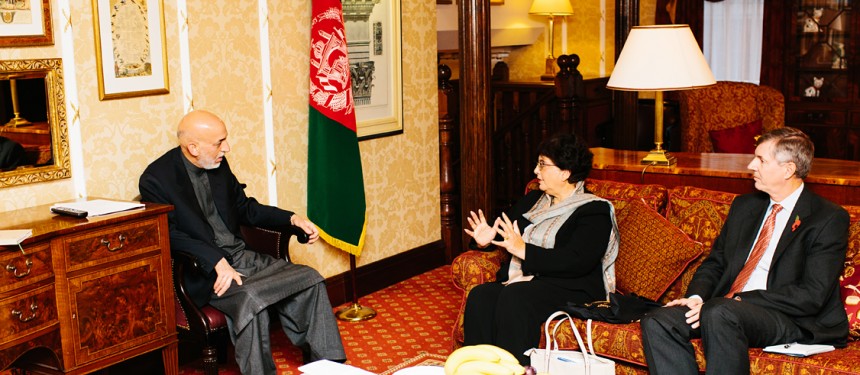Afghanistan’s president Hamid Karzai has signed two agreements with the British Council to ensure training for 16,500 of the country’s estimated 45,000 English teachers and to support the Ministry of Higher Education’s goal to move Kabul’s public universities towards an English curriculum.
News and business analysis for Professionals in International Education
Have some pie!
Afghanistan signs new ELT agreements
 President Karzai talking with the British Council's deputy Chair of Trustees, Baroness Prashar, and its Afghanistan director John Mitchell – London, UK
President Karzai talking with the British Council's deputy Chair of Trustees, Baroness Prashar, and its Afghanistan director John Mitchell – London, UK As foreign troops begin their mass exodus in 2014, Afghanistan is focusing on education including English language teaching as one of the the cornerstones that will ensure the country’s development.
“The 2014/15 transition years from having a foreign military presence will still require international collaboration”
“We are very pleased that the British Council is able to support the future generations of Afghanistan and we are happy and committed to support these educational programmes,” Karzai said. “English as a medium requirement at schools will create many more opportunities for our students in Higher Education.”
John Mitchell, the British Council’s Director in Afghanistan, confirmed that English will critical to the country’s development. “The 2014/15 transition years from having a foreign military presence will still require international collaboration.”
With some five million of Afghanistan’s 12 million school aged children living without access to education and 50% of schools lacking safe, sanitary buildings, the ministry of education is well aware of the challenges that lie ahead.
Alongside English language training, small steps are also being made within the country’s technical and vocational education and training (TVET) sector aiming to increase the number of TVET students to 150,000 by 2015.
A recent report from The Economist Intelligence Unit described the private sector’s role as a TVET provider in Afghanistan describing how USAID’s Afghanistan Workforce Development Programme (AWDP) brokered 300 meetings between private sector companies and AWDP graduates.
Earlier this month, the Japanese government confirmed further international support agreed to provide $20 million with the United Nations Educational, Scientific and Cultural Organization (UNESCO) for the third phase of the Enhancement of Literacy in Afghanistan programme (ELA).
ELA began in 2008 and has already seen over 600,000 adults –over 60% were women –undertake nine-month courses in basic literacy and numeracy.
Still looking? Find by category:


